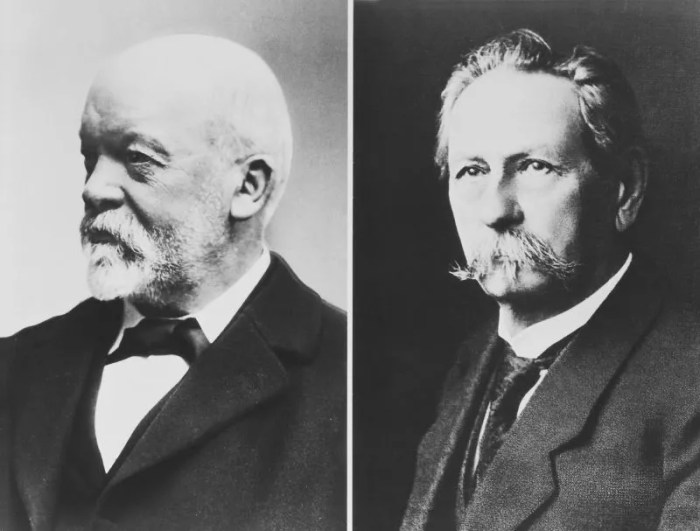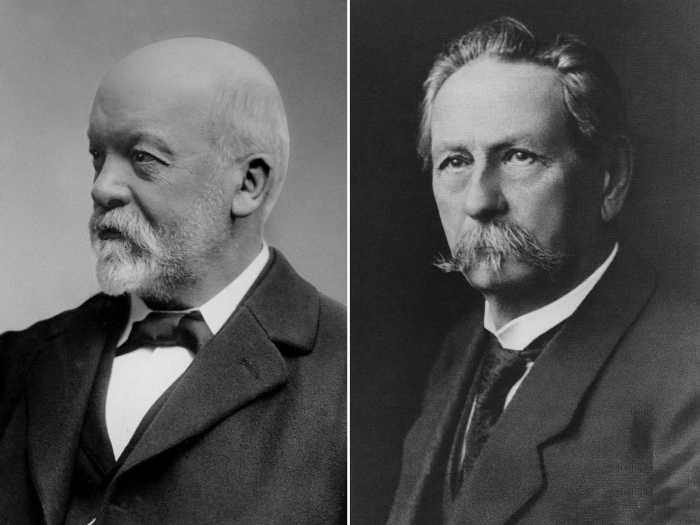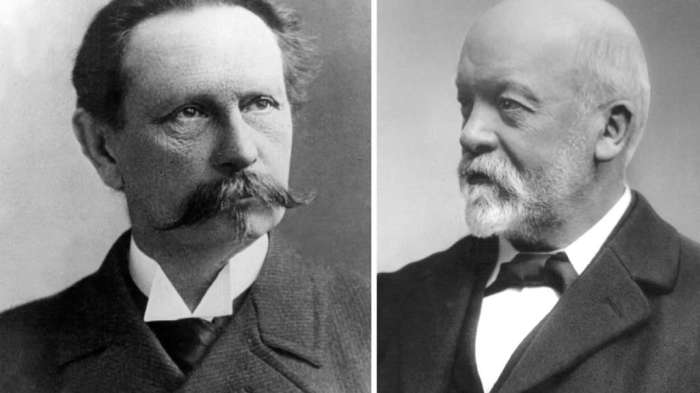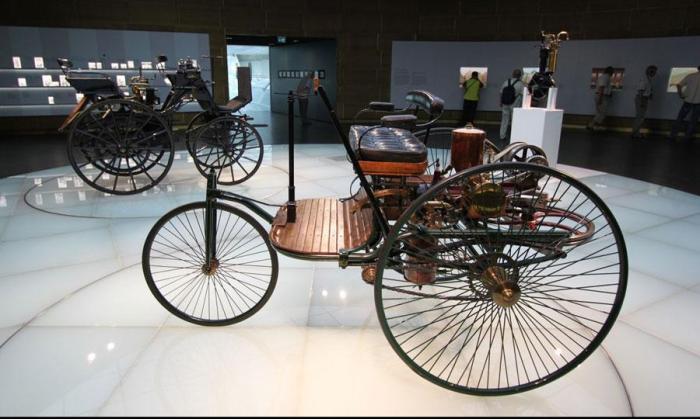Who were considered the grandfathers of the automobile – At the dawn of the automotive era, three brilliant minds emerged as the “Grandfathers of the Automobile”: Karl Benz, Gottlieb Daimler, and Wilhelm Maybach. Their groundbreaking inventions and relentless pursuit of innovation laid the foundation for the modern automobile, transforming transportation and shaping the course of history.
These pioneers’ contributions extended far beyond their individual achievements, profoundly influencing the development and growth of the automotive industry. Their ideas and technologies continue to resonate in modern vehicle design and manufacturing, leaving an enduring legacy on the way we travel today.
Early Automotive Pioneers: Who Were Considered The Grandfathers Of The Automobile

The dawn of the automotive era was marked by the contributions of a few visionary individuals who laid the foundation for the modern automobile. Karl Benz, Gottlieb Daimler, and Wilhelm Maybach are widely recognized as the “Grandfathers of the Automobile” for their pioneering work in developing internal combustion engines, vehicles, and the infrastructure that supported their adoption.
Karl Benz, Who were considered the grandfathers of the automobile
- Invented the first practical four-stroke internal combustion engine in 1876.
- Built the first three-wheeled automobile powered by his engine in 1885.
- Established Benz & Cie., which became one of the world’s leading automobile manufacturers.
Gottlieb Daimler
- Collaborated with Wilhelm Maybach to develop the first high-speed internal combustion engine in 1885.
- Built the first four-wheeled automobile in 1886.
- Founded Daimler-Motoren-Gesellschaft (DMG), which later merged with Benz & Cie. to form Mercedes-Benz.
Wilhelm Maybach
- Collaborated with Gottlieb Daimler to design and build the first Mercedes-Benz automobile in 1901.
- Invented the float carburetor, which improved fuel efficiency and performance.
- Played a key role in the development of the modern automobile industry.
Influence on the Automotive Industry

The innovations of Karl Benz, Gottlieb Daimler, and Wilhelm Maybach had a profound impact on the development and growth of the automotive industry. Their inventions and ideas laid the foundation for the modern automobile and shaped the direction of the industry for decades to come.
Standardization and Mass Production
- Benz’s three-wheeled automobile established a basic design template for future vehicles.
- Daimler’s high-speed engine enabled the development of faster and more powerful automobiles.
- Maybach’s float carburetor improved fuel efficiency, making automobiles more practical for everyday use.
Infrastructure and Distribution
- The development of the automobile led to the creation of roads, gas stations, and other infrastructure to support their use.
- Benz and Daimler established dealerships and distribution networks to make their vehicles accessible to a wider market.
Economic and Social Impact
- The automobile revolutionized transportation and made it more accessible to the general public.
- It created new jobs and industries, stimulating economic growth.
- It facilitated personal mobility and expanded social connections.
Historical Context and Motivations

The emergence of the automobile pioneers was influenced by a number of historical factors. The Industrial Revolution had created a demand for new modes of transportation, and the availability of new materials and technologies made it possible to develop internal combustion engines and automobiles.
Technological Advancements
- The development of the internal combustion engine by Étienne Lenoir in 1860 provided a power source for automobiles.
- Improvements in metallurgy and manufacturing techniques made it possible to produce lightweight and durable components for vehicles.
Social and Economic Factors
- The growth of cities and the need for faster and more efficient transportation created a demand for automobiles.
- The rise of the middle class and the desire for personal mobility provided a market for automobiles.
Motivations of the Pioneers
- Karl Benz was driven by a desire to create a practical and affordable means of transportation.
- Gottlieb Daimler and Wilhelm Maybach were motivated by a passion for engineering and the desire to develop high-performance engines.
FAQ Explained
Who is considered the “Father of the Automobile”?
Karl Benz is widely recognized as the “Father of the Automobile” for his invention of the first practical internal combustion engine-powered automobile in 1885.
What was Gottlieb Daimler’s major contribution to the automobile?
Gottlieb Daimler, along with Wilhelm Maybach, developed the first high-speed internal combustion engine in 1885, which revolutionized the performance and efficiency of automobiles.
What was the significance of Wilhelm Maybach’s role in the development of the automobile?
Wilhelm Maybach was a brilliant engineer who collaborated with Gottlieb Daimler to design and build the first Mercedes-Benz automobile in 1901, setting new standards for luxury and reliability.
